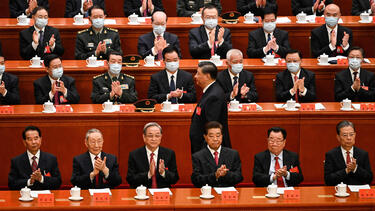Global Business
Better Sanctions Can Weaken Russia
Yale SOM’s Jeffrey Sonnenfeld, who has helped lead the movement to isolate Russia, and co-author Steven Tian write that the current sanctions regime is spottily enforced and ignores key commodities exports. They suggest three steps policymakers should take to give economic sanctions real bite.

No, the Business Exodus from Russia Was Not a Bonanza for Putin
Yale SOM’s Jeffrey Sonnenfeld and Steven Tian, with Tymofiy Mylovanov and Nataliia Shapoval of the Kyiv School of Economics, respond to a New York Times articles on the effect of the boycott.

To Prevent a Wider War in the Middle East, Choke Off Iran’s Oil Sales
Through its proxies, Iran is making aggressive moves against Israel and the U.S. Yale SOM’s Jeffrey Sonnenfeld and Steven Tian write that the U.S. has an option for effective deterrence: cutting off Iran’s oil revenue by strengthening sanctions and imposing a price cap.
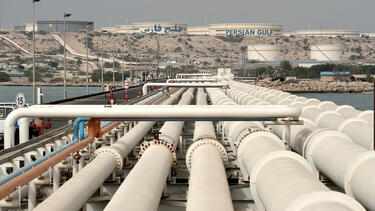
The Russian Oil Price Cap Can Work Again
With oil prices rising, Russia is finding ways around the price cap set earlier this year. But Yale SOM’s Jeffrey Sonnenfeld, who advised on its implementation, writes that with rapid adjustments, the program can continue to hobble Vladimir Putin’s war effort.

What Awaits Ukraine Once the War Ends? Prosperity, For One Thing
Once freed from Russian aggression, Ukraine will thrive, argues Prof. Jeffrey Sonnenfeld.
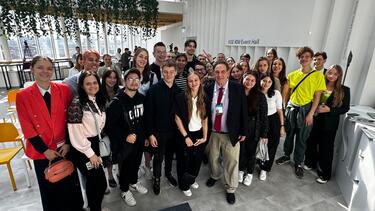
Can China Reverse Its Economic Slump?
Earlier this week, the Chinese central bank unexpectedly cut a key interest rate in an effort to reinvigorate a stalling economy. We asked Yale’s Stephen Roach about the outlook for China and the rest of the world.
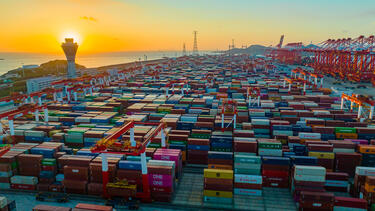
It’s Time to Disentangle from China
As the risks of dependence on China become more apparent, a few companies are diversifying their supply chains. But inertia and short-term thinking are keeping many companies tethered to markets and suppliers in the world’s second-largest economy, write Yale SOM’s Jeffrey Sonnenfeld and Steven Tian and investor Kyle Bass.
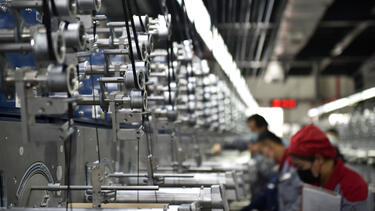
With ‘Zero Visibility’ into the Russian Economy, the IMF is Parroting Putin’s Line
Rather than admitting ignorance, write Yale’s Jeffrey Sonnenfeld, Stephen Roach, and Steven Tian, the IMF is accepting the Kremlin’s statistics—and fueling pessimism about the impact of sanctions.
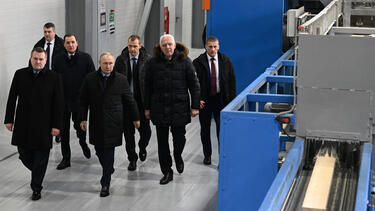
A Year after the Invasion, the Russian Economy Is Self-Immolating
Economic pressure and a talent drain are pushing Russia into permanent irrelevance, write Yale SOM’s Jeffrey Sonnenfeld and Steven Tian.
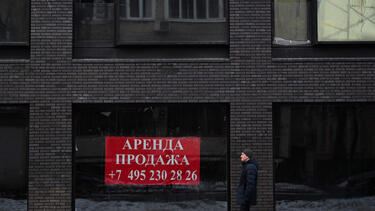
The U.S. Has Thwarted Putin’s Energy Blackmail
Yale SOM’s Jeffrey Sonnenfeld and Steven Tian write that the Biden administration’s balanced approach has helped Europe maintain its natural gas supply while protecting U.S. interests.
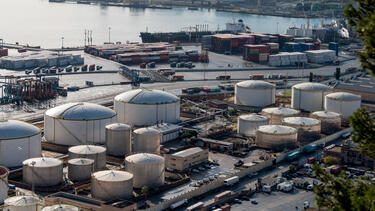
What’s the Future for Western Businesses in Xi’s China?
We asked Stephen Roach, a senior fellow at Yale Law School’s Paul Tsai China Center, what another five years of Xi Jinping’s leadership means for China’s economic policies and the environment for Western businesses there.
